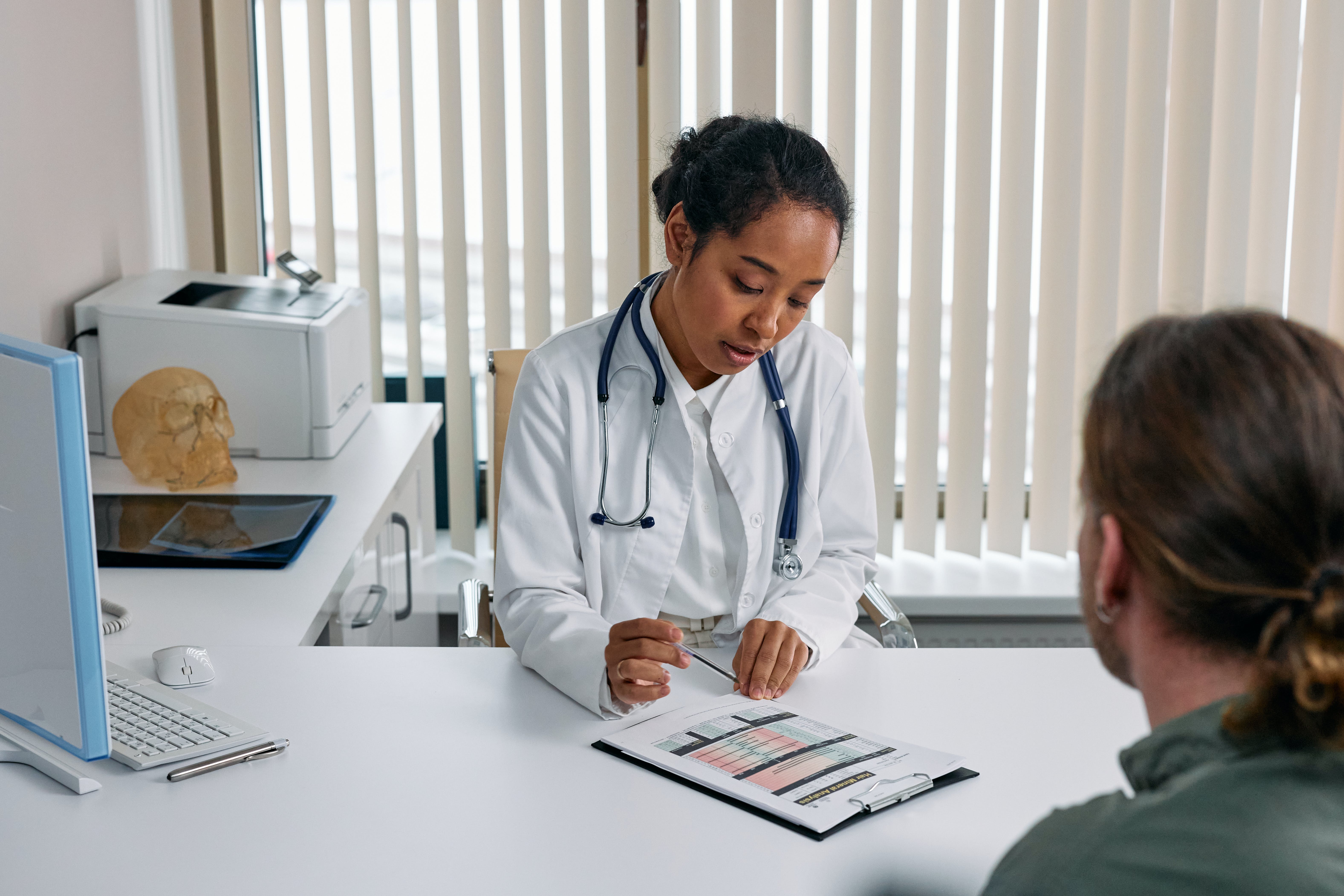

Equip Peer Mentor Stacy Jones knew she had a problem, but she didn’t think anyone could help. After spending years blaming herself for binge eating disorder (BED), Jones was ready to ask for help—but she wasn’t sure how to do it.
“I felt so many things leading up to telling my provider,” Jones says. “I was anxious, I doubted if it was worth bringing it up, and I felt confused on what all of it could mean. But I realized that if I didn't say anything, nothing would change—I would continue to feel anxious around food, be critical of myself, and hate looking in the mirror.”
Rather than continue to ignore the issue, Jones decided to address it head-on. “I made a list of what was concerning me and what questions I needed answered,” she says. “When I met with my healthcare provider, I just started with being as open as I could about what was going on and letting them know I needed support with it.”
Many people with eating disorders continue to get overlooked in the healthcare system and go undiagnosed. Every single person deserves effective, evidence-based treatment.
Why so many people with eating disorders don’t get the support they deserve
There are myriad reasons why so many people—particularly those in marginalized groups—don’t receive proper diagnoses and treatments. “Stigma, biases, and misconceptions heavily influence who gets a diagnosis and care,” Jones says. “There has been a long-standing stereotype for who people believe develop and can have an eating disorder.”
Research has shown that eating disorder rates are higher among transgender, gender non-conforming, and queer individuals, but pervasive stereotypes about who gets eating disorders (often depicted as affluent, cisgender, white, heterosexual girls) continue to leave members of the LGBTQIA+ community without proper attention and care. For similar reasons, BIPOC individuals often slip through the cracks of the healthcare system, despite the fact that 20-26% of those affected by eating disorders identify as BIPOC. BIPOC individuals with eating disorders are also half as likely to be diagnosed or to receive treatment and are significantly less likely than white individuals to be asked about symptoms by a doctor.
“My body never fit into the box of someone who has an eating disorder,” Jones says. "The behaviors I engaged with were sometimes even encouraged. It wasn't until I found the language of having an eating disorder and decided to advocate for myself that I began to find the needed support.”
Equip Director of Psychiatry, Maria C. La Via, MD, says that there’s also a common misunderstanding of what “qualifies” as disordered, which can lead many individuals to avoid reaching out for support. “When an individual doesn't think their eating disorder symptoms are ‘bad enough,’ it’s important to educate them on both the medical and psychological impact and the co-occurring medical and psychological symptoms,” La Via says.
While it may be extra challenging for some to broach the topic with their healthcare providers, there are strategies that can help ease the tension and ensure adequate support is offered.
How to talk to your provider about your eating disorder symptoms
While it can be challenging to raise the topic of a suspected eating disorder, it’s important to inform a medical provider about symptoms as early as possible so you can get quick, effective treatment. Here are a few tips for how to discuss an eating disorder with a doctor:
1. Organize your thoughts before your appointment
A lot can happen in the course of a doctor’s appointment; putting your thoughts on paper (or in your phone) can help ensure all your questions are addressed. “Get clear beforehand what you want to communicate and what you are hoping will come from it,” Jones says. “It can be helpful to write this out and bring it with you.” If you’re having trouble phrasing your thoughts, try being direct, detailed, and to-the-point. “Be as open and honest as you can be about your concerns,” La Via says. “Start by saying, ‘I'm worried I may have an eating disorder.’ Be specific about symptoms, even if they may seem embarrassing.” Eating disorders are complex brain illnesses, and not a reflection of your own willpower or personal choices.
2. Prepare for it to be hard to talk about at first
Allowing yourself to be honest and vulnerable can be incredibly challenging. Make sure you practice self-care before and after your appointment, either by making plans with trusted friends or scheduling comforting activities that can help you de-stress. “Create a plan for how to care for yourself leading up to and after talking to your provider,” Jones says.
3. Understand that you may need to talk to more than one doctor
Unfortunately, not every healthcare provider is well versed in eating disorders. Know ahead of time that your doctor may not fully understand your symptoms or how disordered eating is affecting your quality of life. “Your doctor may not be familiar with eating disorders and how to diagnose them,” La Via says. “Ask for help in finding someone who has more knowledge if they feel underprepared,” La Via says. One resource La Via recommends patients share with their providers is the Academy for Eating Disorders (AED) website.
4. Do your own research on eating disorder treatment programs
If you leave the appointment not feeling heard or taken seriously, pursue an appointment with a doctor or program who specializes in treating eating disorders. There are many treatment options out there, including virtual care, and these programs will be happy to walk you through how to get a proper diagnosis and care. “Remember that no matter how your doctor responds, you deserve care,” Jones says. “There are no conditions for deserving proper care.”
If you’re worried you might have an eating disorder, you can talk to the Equip team today to ask questions and learn more about Equip’s unique virtual treatment model that offers evidence-based care from home.
- Nagata, Jason M., Kyle T. Ganson, et al. 2020. “Emerging Trends in Eating Disorders among Sexual and Gender Minorities.” Current Opinion in Psychiatry 33 (6): 562–67. https://doi.org/10.1097/yco.0000000000000645.
- “Position Statements - Academy for Eating Disorders.” n.d. Www.aedweb.org. Accessed November 18, 2023. https://www.aedweb.org/get-involved/advocacy/position-statements/eating-disorders-are-serious-mental-illnesses.







